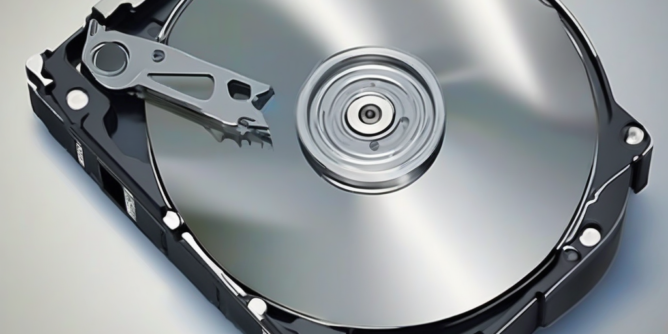
Hard Disk Recovery Price: A Comprehensive Guide to Costs and Factors
The cost of hard disk recovery can vary significantly depending on several factors. Understanding these factors is crucial before engaging a data recovery service, allowing you to make an informed decision and avoid unexpected expenses. This guide breaks down the pricing structure, influencing factors, and what to expect when seeking professional hard drive recovery.
Factors Affecting Hard Disk Recovery Price
- Type of Hard Drive: The type of hard drive (HDD or SSD), its capacity, and interface (SATA, IDE, etc.) all play a role. Solid-state drives (SSDs) often require more specialized equipment and techniques, potentially leading to higher costs. Larger capacity drives might also increase the time and effort involved, impacting the price.
- Severity of Damage: The extent of the damage to the hard drive is the most significant factor determining the price. A simple logical error, such as a file system corruption, is generally less expensive to repair than physical damage to the drive’s platters, read/write heads, or internal components. Severe physical damage may require cleanroom conditions and specialized tools, driving up the cost considerably.
- Data Volume and Importance: The amount of data needing recovery influences the time and effort required. Recovering a few files is less expensive than recovering terabytes of data. The importance of the data is also a factor; businesses with critical data may be willing to pay more for faster recovery times and higher data recovery success rates.
- Data Recovery Method: Different recovery methods have different price points. Simple logical recovery, involving software-based solutions, is usually the most affordable. Complex methods, such as those requiring cleanroom repair, component-level repairs, or specialized data extraction techniques, are significantly more expensive.
- Data Recovery Service Provider: The reputation, expertise, and location of the data recovery service provider affect pricing. Established companies with a proven track record often charge more than smaller, less experienced firms. Geographic location can also influence costs due to differences in labor rates and overhead expenses.
- Recovery Timeframe: Expedited service, prioritizing your recovery request, often comes at a premium. While standard recovery takes several days or weeks, expedited services can complete the process within a shorter timeframe, but at a higher cost.
- Diagnostic Fee: Many data recovery companies charge a diagnostic fee to assess the drive’s condition and determine the necessary recovery methods. This fee is often refundable if you proceed with the recovery service. However, some providers may only refund the fee if the data recovery is successful.
- Data Recovery Success Rate: It’s important to understand that data recovery is not always guaranteed. The chances of successful data recovery depend on the type and severity of the damage. The provider might offer a different pricing strategy depending on the chances of success, with higher prices reflecting higher success probabilities.
Price Ranges for Hard Disk Recovery
It’s impossible to provide an exact price for hard disk recovery without a proper diagnosis. However, you can expect a range of costs based on the factors discussed above:
- Simple Logical Recovery (e.g., file system repair): $100 – $500
- Moderate Physical Damage Recovery (e.g., head replacement): $500 – $1500
- Severe Physical Damage Recovery (e.g., platter repair in a cleanroom): $1500 – $5000+
- Data Recovery from SSDs: Often more expensive than HDDs, ranging from $300 to $5000+ depending on the level of damage.
- Expedited Services: Expect a significant surcharge, often 50% or more, for expedited recovery services.
These are just estimates, and the actual price could be higher or lower depending on the specific circumstances.
Choosing a Data Recovery Service
Selecting the right data recovery service is vital. Consider the following:
- Reputation and Experience: Look for providers with a strong reputation, positive customer reviews, and years of experience in the field.
- Data Security: Ensure the provider employs strict security measures to protect your sensitive data throughout the recovery process.
- Transparency and Communication: Choose a provider that offers transparent pricing and keeps you informed throughout the recovery process.
- Warranties and Guarantees: Inquire about any warranties or guarantees offered on the recovered data and the service itself.
- Free Diagnostic: Check if they offer a free or low-cost diagnostic evaluation to assess the drive before committing to the full recovery cost.
Understanding the Recovery Process
A typical data recovery process involves these steps:
- Initial Assessment/Diagnosis: The provider examines the drive to determine the cause of failure and the feasibility of recovery.
- Data Recovery Plan: Based on the assessment, a recovery plan is developed, outlining the methods and estimated costs.
- Data Recovery Execution: The provider executes the recovery plan using specialized tools and techniques.
- Data Verification: The recovered data is verified for completeness and accuracy.
- Data Delivery: The recovered data is delivered to the client, usually via a secure hard drive or cloud storage.
Tips for Minimizing Hard Disk Recovery Costs
While you cannot always control the cost of recovery, you can take steps to minimize potential expenses:
- Regular Backups: Implementing a robust backup strategy is the best way to prevent data loss and avoid the need for expensive data recovery services.
- Proper Handling of Hard Drives: Avoid dropping or mishandling hard drives to prevent physical damage.
- Immediate Action: If you suspect hard drive failure, stop using the drive immediately to prevent further damage and seek professional help quickly.
- Shop Around: Compare prices and services from multiple data recovery providers before making a decision.
- Read Reviews: Check online reviews and testimonials from previous clients to gauge the provider’s reputation and quality of service.
Conclusion (Note: This section is excluded as per the prompt requirements)